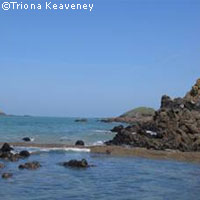Experts call for partnership approach to marine research strategy
Experts in marine and maritime science and policy, meeting at EurOcean 2007 in Aberdeen, UK, have issued a declaration calling upon the European Commission and EU Member States to further develop partnerships with stakeholders in order to initiate, by 2008, a European marine and maritime research strategy. The 'Aberdeen Declaration' supports the European Commission's proposal for an all embracing European Maritime Policy, whose goal is to develop a dynamic maritime economy in harmony with the environment. A marine and maritime science, research, technology strategy, is a key component in this policy. It is thought that Europe could significantly increase its share of the estimated €4,360 billion global maritime market economy through the development of innovative marine and environmental technologies. Marine science can also help Europe in its response to one of the greatest challenges currently facing humankind, that of climate change. Mitigation schemes and renewable ocean energy systems could, for example, help reduce CO2, while also improving energy security and offering new business opportunities. The challenge ahead is therefore to ensure the development of a research strategy that incorporates all the necessary components to meet these economic and environment goals. The declaration goes on to pinpoint some of these essential components. They include foresight activities to identify new and emerging scientific challenges and opportunities, and cross-sectoral, multinational and interdisciplinary research. Research partnerships and better cooperation should also be stepped up between research, industry and other stakeholders to enhance knowledge and technology transfer and innovation. Increased sharing, planning and investment of critical infrastructure on a Europe-wide basis should also be a priority. According to the declaration, the preparation of the strategy should involve all the key stakeholders, such as the Commission, Member States, research funding agencies, researchers, local government and residents, and non-governmental organisations. 'The diverse perspectives of these various stakeholder groups must be brought together in an holistic, creative and flexible way through dialogue and sustained action,' it states. As for its implementation, the declaration suggests the establishment of an adequately resourced and permanent mechanism, such as a secretariat, a network of networks or some other structure, should oversee the strategy's delivery. The declaration concludes by calling for several important actions to be taken: - establishment of an implementation and monitoring mechanism to fully enhance the status of marine sciences and technologies as a priority cross-cutting theme in the EU's Seventh Framework Programme (FP7); - establishment and resourcing of a European Marine Observation and Data Network (EMODN); - advancement of cooperation between the research and technology programmes of the EU and the Member States, particularly within the context of the ERA-NET scheme; - preparation of a 4-D digital European Atlas of the Seas; - support for other key infrastructures, including, for example, high performance computing, modelling and prediction capabilities, satellite and in-situ ocean observing systems, real-time seabed and water column observatories, moorings, platforms and research fleets; - support for a regular (annual) European Marine Science and Technology Conference. //CPA For more information, please visit: http://ec.europa.eu/maritimeaffairs/eurocean2007.html



